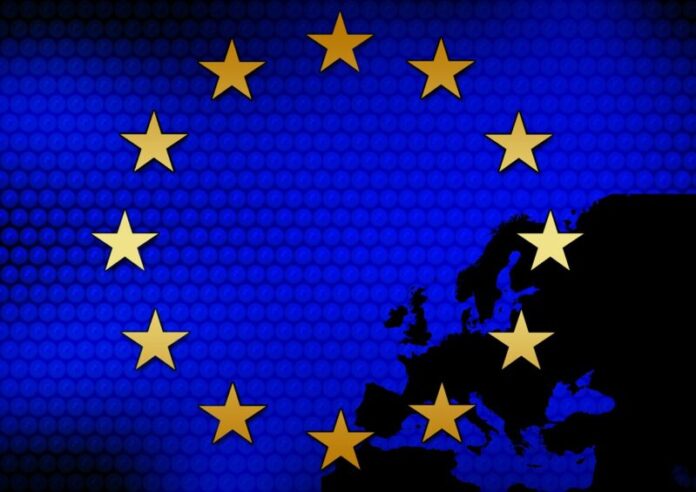
-
President Marcos’ nudge on European leaders regarding a proposed EU-Philippines free trade agreement was welcomed European Council President Ursula von der Leyen
-
Marcos met with Von der Leyen after addressing the ASEAN-EU Commemorative Summit in Belgium in which he sought “closer economic cooperation” with EU
-
The President also said he is pursuing renewal of the Philippines’ participation in the EU’s Generalized Scheme of Preferences Plus (GSP+)
President Ferdinand Marcos Jr.’s push for a free trade agreement between the Philippines and the European Union was recently welcomed by European Council President Ursula von der Leyen.
The December 14 meeting with von der Leyen on the sidelines of the Association of Southeast Asian Nations-European Union Commemorative Summit in Belgium, followed Marcos’ address to the summit in which he sought “closer economic cooperation” between the Philippines and EU, the Office of the Press Secretary said in a press release on December 16. Marcos returned to Manila on Dec 15.
Aside from expanded talks on a PH-EU FTA, Marcos said he is pursuing the renewal of the Philippines’ participation in the European Union’s Generalized Scheme of Preferences Plus (GSP+).
Von der Leyen told Marcos during their meeting that the GSP+ “would open the door for much easier start into going into free trade agreement negotiations…Let’s work on it.”
Marcos was quoted as saying during the Philippines-EU business roundtable in Brussels that the Philippines is “the only ASEAN country to benefit from the EU GSP+.”
The GSP+ is one of the EU’s specialized incentive arrangements for sustainable development and good governance in the form of zero duties. It is a unilateral trade arrangement that offers zero tariffs on 6,274 products or 66% of all EU tariff lines.
Before applying for GSP+, the Philippines was using the Standard GSP and, by 2012, was the 20th largest user of this scheme out of 140 beneficiaries.
In June 2012, the EU announced it included the Philippines in the list of countries eligible to apply for the revised GSP+ program for 2014-2023. In return, the country was expected to effectively implement 27 international core conventions on labor rights, human rights, good governance and the environment.
On June 8, 2016, the European Parliament adopted a resolution welcoming a December 2015 agreement to open talks on an FTA with the Philippines that should act as a building block towards a bi-regional EU-ASEAN agreement.
In a series of resolutions on the Philippines, the EU Parliament expressed deep concern in September 2016 about the high number of people killed in anti-crime and anti-drug operations; another in March 2017 highlighted the case of Senator Leila De Lima, condemned drug trafficking and drug abuse in the country, and urged EC to convince the Philippines to stop extrajudicial killings in the anti-drug war; a resolution on April 19, 2018 called on EC to initiate procedural steps leading to a temporary withdrawal of the GSP+ preferences should there be a lack of concrete improvements in ceasing extra-judicial killings.
In its resolution on the Philippines on September 17, 2020 included the case of journalist Maria Ressa. Given the seriousness of the human rights violations, the EU Parliament again called on EC to immediately initiate procedural steps leading to the temporary withdrawal of the GSP+ preferences should there be a lack of substantial improvement and willingness to cooperate on the part of Philippine authorities.
In a meeting earlier with EU business leaders, Marcos said: “While the Philippines awaits the resumption of the PH-EU Free Trade Agreement negotiations, we remain committed to maintain our EU GSP+ beneficiary status, serving as a stepping-stone towards this FTA.”
In his speech at the EU-ASEAn summit on Dec 14, Marcos said as economies rebound from the COVID pandemic and current threats to supply chains, he hoped to see movement on the proposed Philippine-EU FTA, as it has now been overtaken by the Regional Comprehensive Economic Partnership (RCEP) among Asia-Pacific countries.
With the RCEP coming into force, the EU is missing out on the benefits of having a similar agreement with ASEAN, he said.
Marcos also said ASEAN and EU leaders should unite in mitigating climate change, which threatens to radically transform many vulnerable ASEAN landscapes for the worse.
He also proposed defense and cybersecurity cooperation during his bilateral meetings with Spain, Czechia, Estonia and The Netherlands, and got Dutch Prime Minister Mark Rutte to agree to bolster their two countries’ defense and water management relations.
Marcos met with Czech Prime Minister Petr Fiala and sought Czech assistance in technology transfer in the defense sector.
In a bilateral meeting with Estonian Prime Minister Kaja Kallas, Marcos was invited to visit Estonia to learn more about digitizing government processes and addressing cyber-attacks. Marcos sought Estonia’s help in the Philippines’ digital transformation.
Spanish President Pedro Sanchez, who called the Philippines a “priority country,” assured Marcos of “institutional support” and assistance to “strengthen the dialogue” in the Bangsamoro Autonomous Region in Muslim Mindanao during their bilateral meeting.
RELATED READ:




